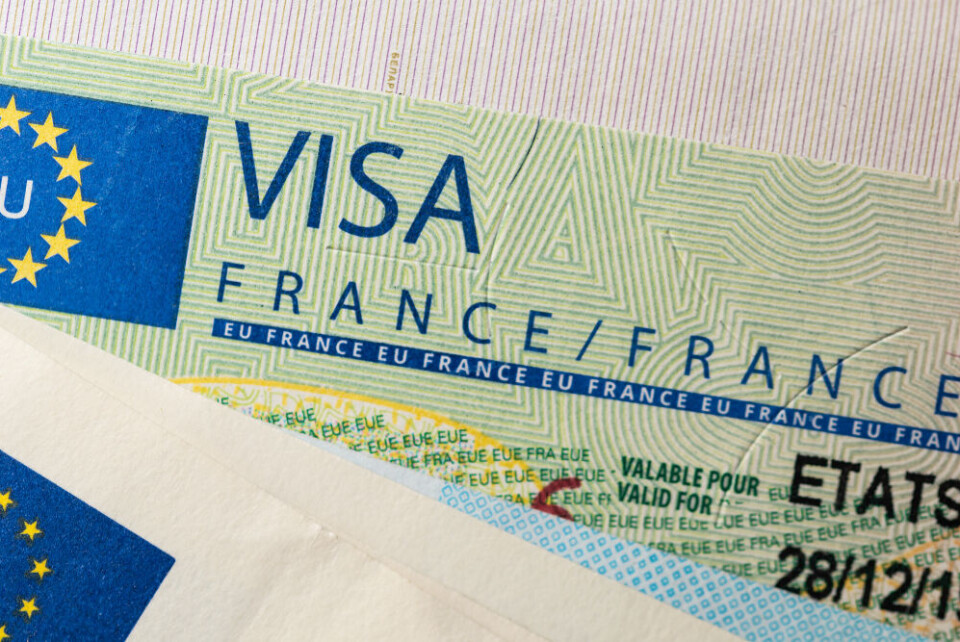-
Photos: Louis XIII-style château near Paris up for auction
The 400-year-old property has 32 hectares of parkland
-
Should France reduce the size of its baguettes to stop waste?
Would you welcome a smaller loaf?
-
Fatal HGV crashes: Goodyear in court in France over tyre defect claims
Investigators allege the firm knew about the problem but did not issue a recall
UK nationals may only have one six-month French visa per year
Connexion readers report being told a new rule means people can only obtain a second visa from six months after the expiry of their first

Several Connexion readers who have recently re-applied for French temporary long-stay visas allowing a visit of four to six months report being told that a new visa cannot start until at least six months after the expiry of the last one.
‘Cannot cumulate visas within a year’
Retirees Dudley and Christine, who have a holiday home in France, were granted a six-month visa last June and applied for another visa de long séjour temporaire earlier this month.
“We went through the visa application process again,” submitting the documents on March 7, “and were refused because we did not have six months between the two visas,” they told The Connexion.

Dudley and Christine were refused a new French visa because 12 months had not yet passed since their first was granted. Pictured here at an anti-Brexit protest. Pic: Dudley and Christine
“The TLS office accepted the applications, they were not refused until they were submitted to the embassy.”
The French consulate told the couple that their applications had been rejected because “you cannot accumulate more than one VLS-T [temporary long term visa] within a year.”
It should be noted, however, that you can submit another visa application within the six-month gap, but the actual visa start date must be at least six months after the end of the first visa’s validity period (and therefore usually 12 months from its start date).
The consulate also “offered to delay the start date of the new visa to June, which would have been six months from the end of the original visa. We refused as it did not help our position at the time.”
“This apparently is a new ruling and we were not the only ones caught by it,” Dudley and Christine said. “We did not know the other people who were also refused a long-stay visa but the TLS staff member who returned our passports to us told us the reason was the same as ours.”
The couple had wanted to obtain a visa so that they could stay in their French house while they wait for completion on a UK property purchase.
“We still have six weeks before completing our purchase in the UK and therefore have had to rent a holiday let for this period. This was not an easy process and amounts to a few thousand pounds,” they said.
Visas do not have to be for six months
Retired engineer and teacher Phil Hallam, who lives in Saltcoats, Scotland, has owned a house in the Dordogne since 2004, and had a similar experience to Dudley and Christine, having been granted a six-month visa starting on June 12, 2021.
“The visa expired on December 12, however my wife and I returned to the UK in October,” he told The Connexion.
“This year we applied for a six-month visa to go at the end of April, filled in the form and obtained an appointment at TLS Contact in Edinburgh.
“At this we were told that there had to be six months between each visa and our visa could not start until June 12, 2022.
“We would also have to return to TLS later on as we were outside the 90-day window for applying for our visa.” French visa applicants may only submit their applications a maximum of three months before they plan to travel.
“When we did return for our visa together, it was suggested that we included a letter in our application requesting a four-month visa so that in future our visa for subsequent years could start in May.
“Although the visa form states a ‘3-6 month visa’ there is nowhere on the form to indicate when you wish the visa to terminate.
Read more:France travel: Can spouses of EU citizens stay beyond 90 days?
“We thought that the last exit stamp which was in October would terminate the visa - this was not the case.”
Mr Hallam therefore did include a letter asking for a shorter visa length with his application documents, and this request was granted, although the visa must still be issued for full months. So, if it begins on June 12, it may end on October 12, November 12 or December 12, for example. The end date of the validity is indicated on the visa.
“The lady from the embassy was most helpful and she termed this as ‘resetting our visa’,” Mr Hallam said. “Obviously whatever date we chose next year will ‘set’ our visa for subsequent years.”
In addition, “TLS explained that we could still go to France in April under the normal 90-day tourist visa but we would have to return to the UK before our visa commenced and then return to France within our visa period so that the visa was validated.
“The people we dealt with at TLS and the embassy have been extremely helpful but they have to abide by a very bureaucratic system.”
“We noticed last year fewer UK-registered cars in [our] area [of France], and some of my friends who have second homes had decided not to apply for a visa but just use the 90-day tourist allowance.
“I get a feeling that if this doesn’t work out for them many will sell their homes and I am fearful for the French communities in these predominantly tourist areas.”
The Connexion contacted the French consulate for further information on the six-month gap rule and rules on combining a visa period with the 90/180-days rule, but it declined to comment.
Have you been told about this rule while applying for a French long-stay visa? If you made your application recently, how did you find the process in general? Please share your experiences by emailing news@connexionfrance.com
Related articles
French Senator fights for British second-home owner rights post Brexit
Is my pet passport still valid despite 90-day limit on stay in France
‘Stressful, nightmare, positive’: readers describe French visa process
























